Research
-

Vanderbilt rocket team earns 2022 NASA Student Launch Project Award
The Vanderbilt rocket team won the coveted NASA Student Launch Project Review Award for the best documentation of the project progress through 2021-2022. The national Student Launch rocketry competition was held in April and results were announced June 3. This is Vanderbilt’s 15th year to participate in the annual NASA event and teams have won the... Read MoreJun 14, 2022
-

Study measures Alzheimer’s risk reductions associated with healthy lifestyles
Reported June 13 in Neurology, an Alzheimer’s disease risk study from Vanderbilt University Medical Center measures significantly reduced risk associated with healthy lifestyles, including non-smoking, leisure-time exercise, low-to-moderate alcohol consumption, adequate sleep and healthy diet. Read MoreJun 13, 2022
-

Filling multiple opioid prescriptions after childbirth associated with maternal death risk
In a new study led by Vanderbilt University Medical Center researchers, women who filled two or more prescriptions for opioids after childbirth faced a 46% greater risk of death than women who did not. Read MoreJun 9, 2022
-

Kidambi wins Department of Energy Early Career funding for isotope separation research
Piran Kidambi, assistant professor of chemical and biomolecular engineering, has been selected to receive funding for research as part of the U.S. Department of Energy’s Early Career Research Program. The program is designed to bolster the nation’s scientific workforce by providing support to exceptional researchers during the crucial early career period, when many scientists conduct... Read MoreJun 8, 2022
-

Engineering doctoral student is Vanderbilt’s first recipient of Rabi Young Investigator Award
Vanderbilt engineering graduate student Sai Abitha Srinivas received the I.I. Rabi Young Investigator Award at the 2022 meeting of the International Society for Magnetic Resonance in Medicine, held May 7-12 in London. This award is recognition for her work to improve image quality in portable MRI systems with minimal passive shielding that could reduce the... Read MoreJun 3, 2022
-
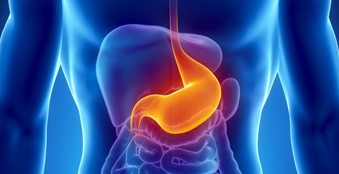
Molecular ‘switch’ may illuminate stomach disorders
An international team that included researchers from Vanderbilt University Medical Center has discovered a molecular switch that induces rapid proliferation of zymogen granule-secreting chief cells in the stomach to regenerate damaged tissue. Read MoreMay 19, 2022
-
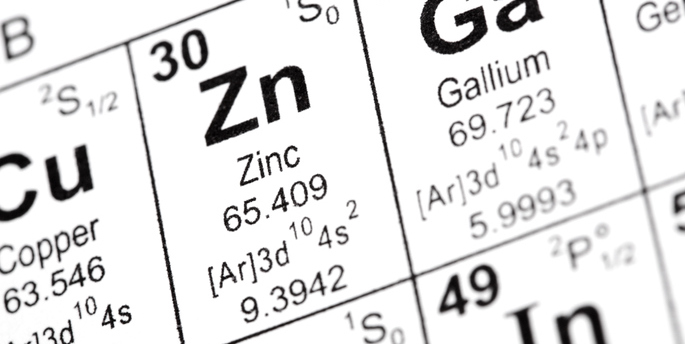
Study identifies first cellular “chaperone” for zinc, sheds light on worldwide public health problem of zinc deficiency
A team led by Vanderbilt researchers has described and characterized the first zinc metallochaperone: a protein that puts zinc into other “client” proteins. Read MoreMay 17, 2022
-
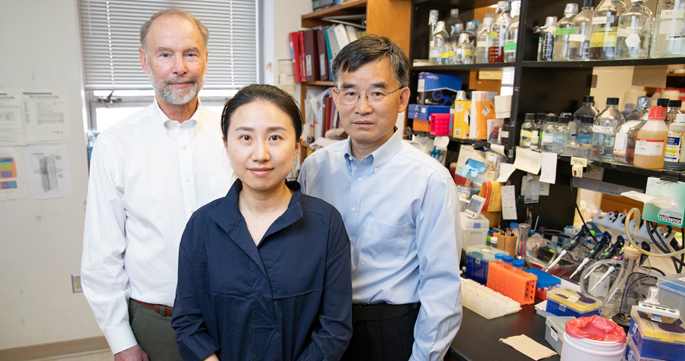
Study sheds light on the dark side of obesity
Vanderbilt research that promotes the anti-inflammatory pathway in macrophages could also reduce some of the bad side effects of obesity. Read MoreMay 12, 2022
-

VUMC-led study finds Moderna COVID vaccine safe and effective for children
Moderna’s COVID-19 vaccine is safe and generates robust immune responses in children ages 6 to 11 years, a national clinical trial co-led by C. Buddy Creech, MD, MPH, has found. Read MoreMay 12, 2022
-
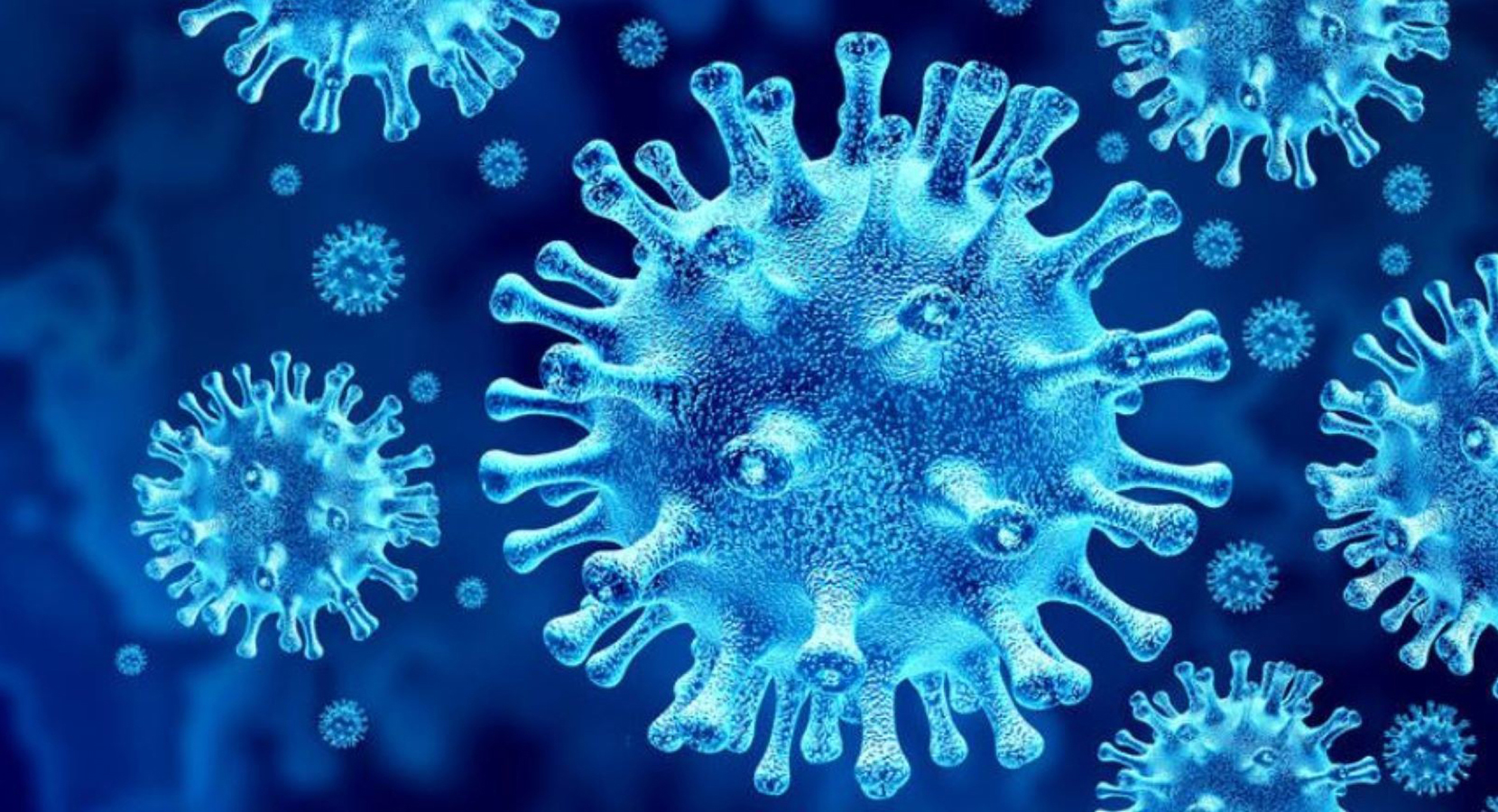
Resistance to COVID-19 drug detected in lab study
Vanderbilt research shows that the virus that causes COVID-19 can develop partial resistance to the antiviral drug remdesivir during infection of cultured cells in the laboratory by more than one mechanism. Read MoreMay 10, 2022
-
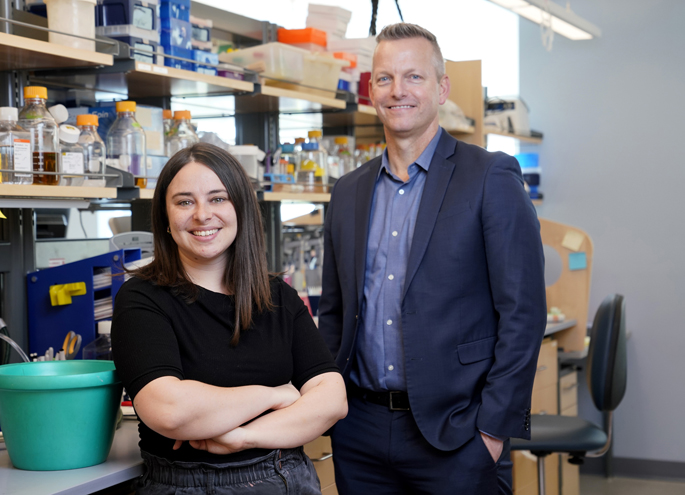
VUMC team discovers how bacterial pathogen survives without water
Vanderbilt researchers are studying a bacterial pathogen that can survive on hospital surfaces — without water — for months, an ability that has helped it become a leading cause of hospital-acquired infections. Read MoreMay 5, 2022
-

Army Futures Command awards Pathfinder seed funding to Tonia Rex and Doug Adams
by Jenna Somers Two Vanderbilt professors were awarded Pathfinder seed funding for a project that could benefit soldiers by optimizing their neurological performance through suggested behavior protocol and by improving aircraft design and equipment to reduce the effects of in-flight vibration and percussion. The U.S. Army Combat Capabilities Development Command Army Research Laboratory and the Civil-Military Innovation Institute... Read MoreMay 2, 2022
-

Nineteen engineering students awarded prestigious NSF Graduate Research Fellowships
Biomedical engineering nets more than any BME department in the country with 10 Sixteen engineering graduate students have been awarded a highly competitive government-funded National Science Foundation Graduate Research Fellowship. Three engineering undergraduate students also received NSF fellowships. NSF Fellows receive a three-year annual stipend of $34,000 along with a $12,000 allowance for tuition and fees... Read MoreApr 29, 2022
-

Studies combine genetic testing, electronic health records to find undiagnosed diseases
Combining genetic testing with information from electronic health records revealed undiagnosed heart rhythm disorders and new conditions associated with inherited cancer gene mutations. Read MoreApr 28, 2022
-

Ndukaife receives NSF Early CAREER Award to investigate cell-to-cell communication
Justus C. Ndukaife, assistant professor of electrical engineering, has received a prestigious NSF CAREER Award for foundational research in cell-to-cell communication. His CAREER project, “Resonant Dielectric Optical Metasurfaces for Single-Cell Extracellular Vesicles Analysis,” will enable Ndukaife to associate the properties of extracellular vesicles directly to their cell sources—up to the resolution of single cells—a capability that... Read MoreApr 18, 2022
-

Tata receives NSF Early CAREER Award to identify network vulnerabilities and failures
Ahmad F. Tata, associate professor of civil and environmental engineering, has received a prestigious NSF CAREER Award for fundamental research in new approaches to network sensors and controllers scheduling. His CAREER project, “Scheduling Driving Sensing and Control Nodes in Nonlinear Networks with Applications to Fuel-Free Energy Systems,” offers a novel framework for the exploration of... Read MoreApr 15, 2022
-

Braun receives NSF Early CAREER Award to create next-gen robots to assist humans
David Braun, assistant professor of mechanical engineering, has received a prestigious NSF CAREER Award for foundational research in mechanically adaptive robotics. His CAREER project, “Mechanically Adaptive, Energetically Passive Robotics,” will enable the creation of new-generation industrial robots, transportation systems, and devices that can assist and augment humans. The five-year, $600,000 grant will support work on robot... Read MoreApr 13, 2022
-

International collaboration reveals how the human brain evolved to harness abstract thought
By Marissa Shapiro THE IDEA The human brain is organized in functional networks—connected brain regions that communicate with each other through dedicated pathways. That is how we perceive our senses, how the body moves, how we are able to remember the past and plan for the future. The “default mode” network is the part of... Read MoreApr 12, 2022
-

International collaboration reveals how the human brain evolved to harness abstract thought
By Marissa Shapiro THE IDEA The human brain is organized in functional networks—connected brain regions that communicate with each other through dedicated pathways. That is how we perceive our senses, how the body moves, how we are able to remember the past and plan for the future. The “default mode” network is the part of... Read MoreApr 12, 2022
-

Karl Zelick is inaugural awardee of a Scaling Success Grant
Karl Zelik, associate professor of mechanical engineering, is one of three inaugural awardees for the February 2022 cycle of the Scaling Success Grant, which is the first cycle of this internal funding opportunity. Yuankai Huo, assistant professor of computer science and computer engineering, is co-PI on a SSG grant. Read MoreApr 11, 2022